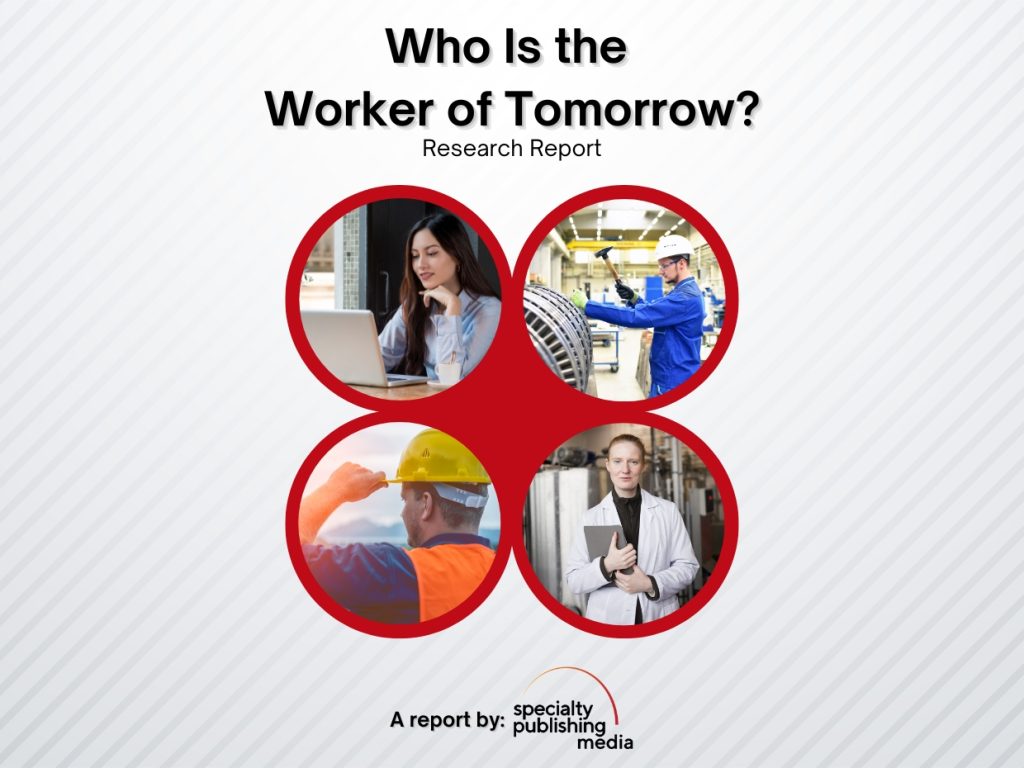-
Our Sustainable Factories
 Peggy Smedley talks about how we can make factories more sustainable, pointing to news and case studies from Hannover Messe. She also shares tangible ideas for how to make our factories a little bit more sustainable. She also discusses: How Norway showcased digital technology and sustainable solutions for manufacturing. A sample e-bike manufacturer case study.…
Peggy Smedley talks about how we can make factories more sustainable, pointing to news and case studies from Hannover Messe. She also shares tangible ideas for how to make our factories a little bit more sustainable. She also discusses: How Norway showcased digital technology and sustainable solutions for manufacturing. A sample e-bike manufacturer case study.… -
Traveling into the Future with AI
 Peggy Smedley and Julie Shainock, global managing director, travel, transportation, logistics, Microsoft, paint a picture of what the future of travel could look like and what Microsoft is doing to help enable the future. She also shares how AI (artificial intelligence) is playing a role in travel and gives advice on how to best prepare…
Peggy Smedley and Julie Shainock, global managing director, travel, transportation, logistics, Microsoft, paint a picture of what the future of travel could look like and what Microsoft is doing to help enable the future. She also shares how AI (artificial intelligence) is playing a role in travel and gives advice on how to best prepare… -
Three Cybersecurity Solutions
 Peggy Smedley talks about the state of cybersecurity, sharing her thoughts about what needs to be done to solve this problem. She says cyber attacks are only going to increase in intensity, and we must be prepared for when an attack happens. She also: Breaks down the problem we are facing with cybersecurity. Discusses how…
Peggy Smedley talks about the state of cybersecurity, sharing her thoughts about what needs to be done to solve this problem. She says cyber attacks are only going to increase in intensity, and we must be prepared for when an attack happens. She also: Breaks down the problem we are facing with cybersecurity. Discusses how…
What's Trending
Spring has sprung and sports are in full swing for many. New technologies—such as AR (augmented reality)—can help sports companies maintain fan engagement while intensifying media competition. Let’s explore how this market will evolve with the rise of AR. GlobalData forecasts the overall AR market will grow at a rate of 21% from $22 billion in 2022 to $100 billion in 2030. The report suggests fan experiences will offer the most lucrative and accessible opportunities for AR integration. Here is how this can help: Provide more engagement and analysis of events in broadcasting. Provide technology to help players—for example a 5G AR helmet for deaf American football players. Provide stadium-based AR mobile experiences to enhance live viewing. Looking to the future, we will continue to see the proliferation of both AR and 5G, which will ultimately lead to more widespread adoption in sports—everywhere from on the field, to in the stadium, to at-home viewing. The result will be greater opportunities for both players and fans…
Utilities face several challenges: expanding and growing the grid, repairing disaster struck areas, and providing data where and when people need it. This all comes at a time when projects are becoming more complex in an industry that needs to consider multi-agency planning. The solution comes in the form of AI (artificial intelligence) and digital twins. Consider the example of Looq AI, which is a hardware-enabled AI company that has developed a new camera AI technology. The Looq platform is a deep technology stack, with a proprietary Q camera system. This allows data to be captured in the field that then gets processed with Looq’s AI-based image-to-model software in the cloud. Ultimately, this will create geo-referenced 3D digital twins and topographic maps with survey-grade accuracy and AI semantic information. Here is how this can help: Capture a large amount of survey-grade data without drones or hundreds of manhours. Get access to the complete information needed for critical decisionmaking, while achieving operational savings. Simplify the process of generating geometrically precise, geo-reference, and intelligent digital twins. Looking to the future, we know Looq AI has secured $2.6 million in seed funding, which brings its total raised to $3.75 million to date. Continue to keep an eye on this trend, as it will likely continue to grow, offering new opportunities for the digital twin in…
Today is Earth Day—what are you doing to protect the planet? Many businesses and individuals are taking the necessary steps to reduce carbon emissions, ultimately improving the environment for generations to come. Consider the example of 27-year-old Dillon Baster, who has an objective to convert upcycled agricultural waste into a compostable plastic alternative. To do this, he launched his company PlantSwitch, which has raised $20 million and is currently manufacturing 50 million pounds of its plant-based bioplastics annually. Here is how this can help: Break down in backyard compost in less than 12 months, leaving no microplastics behind. Resins feel and function like plastic. Resins are “drop-in” replacements, meaning plastics manufacturers can use their existing machines and processes. Ultimately, food service, cosmetics, supermarket, retail chains, packaged goods companies, and others will use this product to become more sustainable. On Earth Day—and every day—it is important to keep a pulse on the alternatives on the market. This is simply one…
In depth study of the worker of the future.
Social

-
Sustainability in South Carolina
Scott Byrne, director of global sustainability services, Sonoco, and Peggy Smedley talk about how the company is involved in South Carolina communities. He talks about some of the bigger one-off projects and sustainability stories in South Carolina. They also discuss: The rise of solar installations across the state and how it greens the grid. A…
-
Our Choices, Our Communities
Peggy Smedley and Kendall Daly, owner, Amend Market, talk about the choices we are making and how that impacts the communities we live in. She says it is really fun to watch people make choices that align with their values. They also discuss: The multifaceted issue and the multifaceted solution. The impact if we stop…
-
Refill, Reuse, and Landfills
Peggy Smedley and Kendall Daly, owner, Amend Market, talk about sustainability including refill, reuse, and landfills. She explains how she got started owning a single refill shop—and the importance of voting with your dollar. They also discuss: How the system works. Creative reuse ideas and examples of products in the shop. Why people like refill…
What You Missed
Jen Huffstetler Jen Huffstetler, chief product sustainability officer, VP & GM future platform strategy, Intel, takes…
Gartner predicts 25% of logistics key performance indicator reporting will be supported by Gen AI by…
With yesterday’s Earth Day top of mind for many, I have some thoughts about how we…










